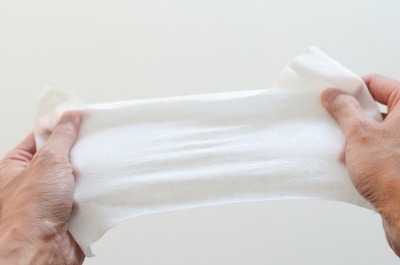Wet wipe mound length of two tennis courts located on Thames riverbed
Thames21 has revealed today (24 November) that there is currently a mound of wet wipes measuring over a metre tall and two-tennis courts long situated on the Thames riverbed.
Cultivated over the past six years, the collected waste was identified using high-resolution sonar and laser scanning technology, courtesy of Tideway, which located the phenomena in the Hammersmith region of the river. Tideway is a supporter of the Thames River Watch programme convened by Thames21 – tasked with monitoring plastic pollution in London’s waterways, back in September volunteers documented 27,400 wet wipes at Battersea Bridge in the span of two days.

In response to the negative environmental impact of wet wipes, a Ten-Minute Rule Bill – proposed by Fleur Anderson MP and lent cross-party support – which would outlaw the use of plastic in the product, is set to have its second reading on 26 November.
Fleur Anderson MP commented: “We use 11 billion wet wipes every year in the UK and 90 per cent of them contain plastic. Flushing the odd wet wipe may not seem like a big deal, but there are 300,000 blockages every year in our sewers.
“Since my 'Ban plastic in Wet Wipes' Ten-Minute Rule Bill had its first reading on Tuesday 2 November, I have been blown away by the amount of coverage and cross-party support the campaign has received.”
Debbie Leach, CEO of Thames21, said: “This data is a stark reminder of the damage wet wipes cause to our natural ecosystems. We are fully supportive of removing plastic from wet wipes and look forward to the day when the river is free from this pollution.”
John Sage, head of corporate responsibility at Tideway, said: “Once complete, the super sewer will capture more than 95 per cent of sewage overflows into the River Thames. While this will help tackle some of the sewage-related litter that ends up in the river, we all have a duty to ensure we are disposing of our rubbish correctly.”
Anna Boyles, Thames Water's operations manager, said: "We know many busy families love the convenience of wet wipes, but most are made from plastic and can take centuries to biodegrade. It’s like flushing a plastic bag down the loo.
"Some wipes are marketed as ‘flushable’. All that means is that they will disappear down the u-bend, but they're not gone for good and could end up clogging your pipes or in the river. We’re working to influence manufacturers to properly label their products and, even better, to remove the plastic from the wipes altogether. If you’re using standard wet wipes, please pop them in the bin instead of the toilet.
"We’re also working with the government, Ofwat and the Environment Agency to accelerate work to stop these unacceptable discharges of untreated sewage and sewage litter from happening in the first place."







